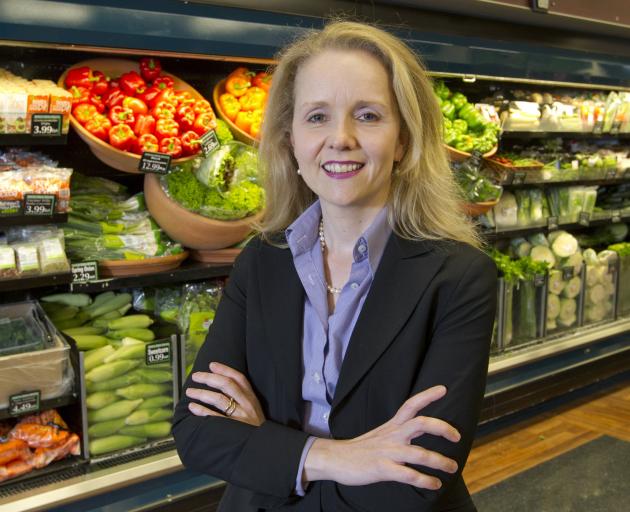The Minister of Health won't dignify it with an answer. But it still needs to be asked. What impact is lobbying having on public health? Sir David Skegg lifts the lid on this hidden topic and tells Bruce Munro a better way is desperately needed.
It was an unusual step.
Select committees are a mix of politicians of various hues, brought together to oversee Bills and nut out the detail of government policy. Away from the theatre of the debating chamber, select committees are proof politicians can work together for the good of the people.

In 2012, however, the alcohol law reform select committee was terminated in disarray. It had been charged with turning the Law Commission's landmark report on alcohol harm reduction into a government Bill.
But Labour and Green party members of the committee were so concerned at how the recommendations were being watered down by the National majority that they publicly claimed interference from industry lobbyists and took the surprising step of producing their own minority report outlining alcohol reforms they believed should be made.
Labour's then-justice spokeswoman Lianne Dalziel was reported saying: "It is not a shadow of the law the Law Commission would've written and that is why I've been saying throughout this debate that it is a travesty".
Fast forward to July last year. Labour was finally in power. Jacinda Ardern was six months in the hot seat, having promised "the most open, most transparent Government that New Zealand has ever had". The wellbeing of New Zealanders would be at the heart of all decisions.
But alcohol reform was not among the Government's legislative plans, Minister of Health Dr David Clark said.
"Many of the Law Commission's recommendations have already been implemented," Dr Clark said.
The minority report was nowhere to be seen.
Then, in December, the Government received the report on the Inquiry into Mental Health and Addiction it had commissioned as a first-out-of-the-blocks, must-do, piece of work.
The inquiry recommendations were adopted, almost wholesale. Except, for the key one on alcohol. The inquiry found there should be stricter controls around the sale and supply of alcohol.
The Government said that was not on the cards.
Watching on was Sir David Skegg.
"Alcohol is the most easily dealt with factor and yet once again the Government is doing nothing," he said.
Sir David is an eminent medical researcher who has been a Dunedin-based adviser to the World Health Organisation for more than three decades.
A Rhodes scholar and Oxford University lecturer, he has been chair of Preventive and Social Medicine at the University of Otago, chairman of the Public Health Commission and the Health Research Council as well as vice-chancellor of the University of Otago. At 71, he maintains an office at the Otago Medical School and a passionate concern for the health of New Zealanders.
A calm, reasoned man, he is, however, incensed by the way successive governments have rejected expert advice and failed to take steps to curb the harm caused by excessive drinking.
The evidence to back up the advice is there, he says.

The widespread damage and suffering caused by this drug in New Zealand has been estimated at $7.85 billion per year.
Last month, for example, Prof Doug Sellman and colleagues in the Department of Psychological Medicine, at the University of Otago's Christchurch campus, writing about the Government's failure to enact the inquiry's key alcohol recommendation, said studies showed alcohol was "a significant factor in causing about a third of completed suicides".
How, asks Sir David, is that not, on its own, enough incentive to act?
His new book, The Health of the People, provides a compelling, troubling answer.
The BWB Texts short book draws on Sir David's years of insider experience to show how lobbying, politics and bureaucratic rivalry have undermined public health in New Zealand.
"Lobbying is a significant part of the problem," Sir David says.
"One of the chief barriers to progress is opposition from vested interests."
He says citizens in an open society should be entitled to two assumptions: decisions about public health will be based on the best available information and trade-offs between health and other objectives will always be transparent.
"Neither of these assumptions can be relied upon in 21st century New Zealand."
Alcohol, he says, is one glaring example.
"If there was a single thing you could do to improve the wellbeing of New Zealanders it would be to curb the misuse of alcohol," Sir David says.
But he says "governments of all political stripes" have been "timorous about countering the power of the liquor companies in pushing their products".

"The name of the council makes you think of things like soap," Sir David says.
"But their members include companies selling tobacco, beer and wine as well as the food industry. They are lobbying all the time."
Journalist Nicky Hager, in his book Dirty Politics, gave evidence that Whale Oil blogger Cameron Slater made personal attacks on health researchers, including Prof Sellman. Hager alleged some of these attacks were arranged secretly on behalf of Rich. She has denied the allegations. Slater and Rich, along with tobacco industry lobbyist Carrick Graham, are facing defamation proceedings.
Sir David pauses to make an important distinction - between personal and public health.
When most people talk about the public health system, they actually mean personal health, hospitals and GPs.
"Most of the money is spent on personal healthcare and it's really important. We all need it."

Personal health is individual and immediate. Public health is the long-term, big-picture investment in prevention.
Public health, in New Zealand, is under-resourced, he says.
Sir David's other glaring example of lobbyists' impact on public health is the battle over obesity.
He knows obesity is a disaster already happening in slow motion.
Two-thirds of New Zealand adults are carrying excessive body weight, putting us in the top three of 35 OECD countries for the prevalence of obesity. Being obese is a risk factor for a host of diseases and disabilities that cumulatively will cost billions of dollars to treat.
"It does affect everybody, because the health system is going to struggle to cope," he says.
Yet, despite health researchers calling for a tax on sugary drinks to slow the epidemic, New Zealand governments, left and right, have been reluctant to go there.
"In Britain, even the Tory Government has introduced a sugar tax. But, again, our Minister of Health has repeatedly said there are no plans to do that in New Zealand," Sir David says with exasperation.
Lobbying against a sugar tax has been the Food and Grocery Council, and the New Zealand Initiative.
The New Zealand Initiative is a think tank that boasts of its reach and influence.
"It was a year in which the Initiative once again left its mark on New Zealand's political debates and public policy," the Initiative's latest annual report states.
Its chief economist, Dr Eric Crampton, is a former academic known for his attacks on public health initiatives, Sir David says.
According to the Initiative website, Dr Crampton wrote or spoke about a sugar tax half a dozen times during 2018.
But, says Sir David, "when Dr Crampton writes an opinion piece arguing that sugar taxes would be `offensive' and ineffective, he does not mention that his organisation is partly funded by Coca-Cola Amatil and the supermarket chains".
While lobbyists claim a sugar tax would hurt the poor, the latest evidence from the United Kingdom shows a different outcome.
It was revealed in the British Medical Journal last month that a sugar levy there, rather than pushing up prices of sugary drinks, has led to many soft drink manufacturers reformulating their drinks to reduce the sugar content in order to avoid the tax.
This was equivalent to removing 45 million kilograms of sugar every year.

"I'm sure there is a huge amount of lobbying going on by commercial interests that would see any measures taken by the Government as damaging to their profits."
That view is backed up by Assoc Prof Brian Roper, head of politics at the University of Otago.
Prof Roper is probably New Zealand's foremost authority on government lobbying by business from the late-1960s to the present day.
He says business groups have always exerted more influence than other groups, but the situation has deteriorated with the declining power and influence of trade unions.
"Business lobbying has become better organised and more effective," Prof Roper says.
"Business lobby groups employ far more professional lobbyists and policy researchers than trade unions and other non-business civil society groups."
Sir David says change is urgently needed.
His solution - sunlight.
"Sunlight is the best disinfectant," he says, quoting early-20th century United States Supreme Court judge Louis Brandeis.
Brandeis was extolling the cleansing power of transparency and quality information.
Sir David proposes an organisation that would inject those elements into public health discussions and policy decisions, for the sake of the health of New Zealanders, let alone the integrity of the political system.
"An independent body would help redress the balance by providing information and presenting the case for actions to protect and improve health," he argues in The Health of the People.
Lobbying is inevitable, he believes. Instead of heavy-handed tactics to remove it, the best course would be to ensure the public and politicians get the best evidence-based advice.
"Many public health measures will inevitably be opposed vehemently by groups with vested interests, so the welfare of the public depends on having a strong and capable agency that can put the case for the health of the people."
Such agencies, funded by government to provide expert advice, exist in New Zealand and elsewhere.
Overseas, he mentions the Centers for Disease Control and Prevention in the US, the Public Health Agency of Canada, the Norwegian Institute of Public Health, the Public Health Agency of Sweden and Public Health England.
Here, he points particularly to the Parliamentary Commissioner for the Environment.
"Over three decades, this institution has earned great respect for its delivery of independent reports and advice on environmental issues, and for its mission to maintain or improve the quality of the New Zealand environment.
"I expect that governments would not be keen to see a proliferation of such agencies, but is not the health status of New Zealanders as important as our physical environment?"
Sir David says we already have a Crown entity that could take on the role, the Health Promotion Agency (HPA).
He believes the HPA's focus is too restricted, but that if it was reshaped to take a wider approach to health promotion and resourced to generate evidence-based policy advice, "it could meet the need for an independent agency dedicated to public health".

That is because New Zealand once had such an agency, the Public Health Commission (PHC), and Sir David was its chairman, from its birth in 1992 until its untimely death at the hands of business lobbyists less than four years later.
During its first couple of years, the PHC developed 24 policy advice papers for the then-National Government, including draft papers on alcohol, tobacco, food and nutrition and food safety.
In July, 1993, however, Sir David and two others from the PHC were summoned by Minister of Health Bill Birch to a meeting with senior ministers and civil servants.
"Mr Birch intimated that the draft papers from the PHC had `upset' the Dairy Board, the Beer, Wine and Spirits Council, and the Wine Institute."
Mr Birch told Sir David it was important the PHC did not annoy such groups.
"Twice he said, `if you want to continue to exist, it is essential that you don't cause such surprises'."
Pointing out the PHC had a statutory obligation to develop public health advice did not get them anywhere. The pressure from business interests and politicians continued.
In late 1994, when Cabinet announced the PHC would be disestablished, the corporate affairs manager of tobacco company Wills (NZ) wrote to colleagues at British American Tobacco "clearly we can't take the total credit for its demise ... but the death of the PHC is a damn fine Christmas present".
The PHC had been set up by Simon Upton, a National MP, who was Minister of Health before Bill Birch and understood the value of independent, evidence-based health advice.
Interestingly, Mr Upton is now the Parliamentary Commissioner for the Environment (PCE).
Asked whether a health entity similar to the PCE could contribute to public health in New Zealand, Mr Upton said it would not be appropriate for him to comment.
He did, however, say the PCE's independence meant he could provide robust and reliable advice, including "to supplement or balance any information provided to politicians by lobbyists".
Dr Clark was brief in his response to the question "Do lobbyists have too much of the Government's ear?".
"I won't dignify suggestions of undue influence by lobbyists with a response," he said.

There is a chance that the wide-ranging Health and Disability System Review will recommend something like the PHC needs to be resurrected.
Sir David says he knows submissions to that effect have been made to the review panel, which is due to release an interim report this month and a final report next March.
Prof Peter Crampton, who is a Professor of Public Health at the University of Otago, is on the expert review panel.
He would not say whether an independent public body, with a PHC-like role, was being considered by the panel, responding simply that "the panel is considering all options".
Even if it does, such a recommendation would likely die of inattention.
Dr Clark, asked whether the Government would support the formation of an independent public body mandated with providing quality, evidence-based, health information and policy advice, said there was "no shortage of credible and well-informed independent voices on health matters".
"I don't intend to establish any new, overarching policy agency," he said.
Disappointment and concern are Sir David's overriding feelings when he considers New Zealand's public health.
He gives our personal health system a B-minus.
But public health gets a "D or E, a fail", he says.
"Public health is very weak in New Zealand."
That has serious implications for the long-term health of the country.
"At the moment, this Government has not taken up the challenge. I personally am extremely disappointed."












